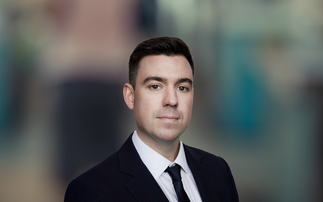The decision to switch the Witan Investment Trust to a best-of-breed structure has paid off, with the trust posting an impressive 9.6% increase in its share price
When the board of the Witan Investment Trust first announced it was planning to embrace an open-architecture style of management, sceptics argued it would be difficult for such a revolutionary move to be successful.
Changing the structure of a well-established product from relying solely on the skills of one fund management house to one that had a truly global outlook, they argued, would be a logistical nightmare to arrange.
However, two years on and the trust has not only transformed itself into a major player in the multi-manager world, but its first set of half-year results since the overhaul was implemented last September, vindicates the board's original decision.
The 9.6% increase in the share price is comfortably ahead of the 6.2% and 5.8% returns achieved by the FTSE World (ex-UK) and FTSE All-Share indices, respectively, for the six months to 30 June 2005.
Switching to a best-of-breed structure was viewed as a radical option at the time, agrees James Budden, Witan's marketing director, but everyone involved in the trust was convinced it made perfect sense - and they have been proved right. As well as removing the reliance on the performance of one manager's track record, the move was also made to reduce the discount, increase returns and provide a modern fund positioned for both long-term growth and capital preservation.
"We felt that it was in the very best interests of all our shareholders to find the most talented managers across the global funds marketplace and have them running the assets," he explains. "After all, it is impossible to expect one company to be the best performers in every single area."
The aim of the £1.45bn trust, which was originally established back in 1909, is to grow the capital value of its clients' assets conservatively by investing with leading fund managers in the UK, United States, Japan, Europe and the Pacific region.
Six fund management companies, who have been hand-picked for their stock selection skills, ownership structures and past performance records, now share the responsibility for constructing the overall shape of the trust.
Choosing the line-up, however, provided a huge challenge to chief executive Jim Horsburgh who personally visited every fund management firm which he believed could play a part in the new-look Witan Investment Trust.
As well as six UK-based firms, there were 12 international fund management giants to interview which meant thousands of air miles were clocked up within a matter of a few months.
It may have been a gruelling experience, says Budden, but it was certainly worth the effort involved as the six selected include some of the most respected and talented names within the industry.
The largest proportion of assets - around 45% - is made up of UK Mainstream and UK Smaller Companies, which are both looked after by Henderson Global Investors, which also has responsibility for the North American investments that currently account for 10% of the portfolio.
At the time of the changes, it was also decided to adopt an enhanced index approach for these UK and US holdings, says Budden, and concentrate on adding value in areas of the world where there is a better chance of achieving out-performance.
"This move was questioned, but we decided to shut down the risk in both the UK and US in order to spend our risk budget where the most difference can be made," he explains. "If we had taken a more active position in the UK it would have had ramifications for the rest of the portfolio."
The global equity mandates were awarded to MFS Investment Management and Southeastern Investment Management who are based in Boston, Massachusetts and Memphis, Tennessee, respectively. Between them these two houses control 25% of the portfolio - equivalent to over £300m of assets.
Wellington Management, which is also based in Boston, is responsible for the 10% stake in European (ex-UK) equities, while the 5% held in Japanese equities is looked after by Brandes Investment Partners, based in San Diego, California. Finally, the Pacific Basin (ex-Japan) interests - currently 5% of the overall portfolio - are being looked after by APS Asset Management which is based in Singapore.
The progress of the new-look trust, which has the ability to employ share buyback programmes to combat any discount volatility issues, has understandably been followed closely by industry observers over the past 12 months.
As a result - and in what is being seen as a ringing endorsement of its changes - Witan has been appointed as executive manager to F&C's Pacific Investment Trust (now Witan Pacific) and will have responsibility for advising on and monitoring its investment managers.
Looking ahead, constant monitoring of these chosen managers will be crucial to the overall success of the trust, acknowledges Budden.
"We see the managers in person twice a year when they come and present to the board," he explains. "Jim Horsburgh also writes a monthly update and we can regularly look at the portfolios."
The benefit of putting money into the trust is illustrated by the five distinct points which, together, come under the heading of Witan Wisdom.
The first two cover the fact it is a unique investment vehicle that offers exceptional multi-management at a low cost, as well as being clearly different from other global growth trusts in the marketplace.
Its balanced proposition, which is aimed at wealth creation, as well as preserving capital in falling markets, is the third point, while giving the private investor access to unrivalled investment talent is the fourth.
Finally comes what investors should be able to expect which is the prospect of above average returns from a truly diverse equity portfolio, tailor-made to the needs of the equity investor. This benefit, says Budden, remains the same whether the client is an experienced hand or a novice taking their first, cautious steps into investment markets.
"We have every confidence in the new structure," he adds. "Its truly global mandate should be capable of delivering handsome returns for investors - regardless of the economic or market conditions."













